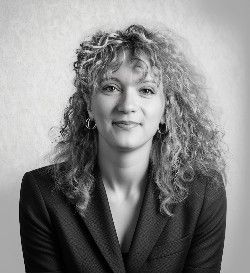
Giaccardi Elisa
Full Professor
Elisa Giaccardi is a leading scholar in More-than-human Design, focusing on post-industrial and post-humanist design paradigms. Over her 25-year career, she has significantly advanced research in Design and Human-Computer Interaction (HCI), focusing on integrating natural and artificial intelligences to address planetary challenges.
Elisa is a Full Professor at Politecnico di Milano, where she leads the Design Intelligences Institute. Her international experience spans the UK, the US, Spain, the Netherlands, and Sweden, earning her the title of Ambassador of Italian Design in the World 2024 by the Italian Ministry of Foreign Affairs and International Cooperation.
Her academic research has been widely published in top international journals and presented at major conferences and global organizations such as UNESCO and TEDx. As a top scientist, she has received numerous prestigious awards, including the TU Delft Technology Fellowship and the Politecnico di Milano Chancellor’s Research Grant. She was honored with the Fondazione ENI Enrico Mattei’s “Ideas for the Future” Award in 2001 and nominated as one of the 50 most influential women in technology by InspiringFifty Italy in 2024.
Elisa has co-founded and contributed to several interdisciplinary research and educational programs, including the European innovative training network DCODE, the TU Delft AI Initiative, the Digital Living Initiative at Universidad Carlos III de Madrid, and the ATLAS Institute at the University of Colorado Boulder. She has also served as an Ambassador of the Amsterdam Metropolitan Solutions (AMS) Institute in the Netherlands. Additionally, she is an Associate Editor of Human-Computer Interaction (4.5 IF, Q1) and serves on the editorial board of the book series Design Research Foundations.
In all these roles, Elisa continues to advance design innovation and interdisciplinary collaboration, significantly impacting contemporary scholarship in design and technology.
Research groups
Design Intelligences
Group detailsIEX
Group details